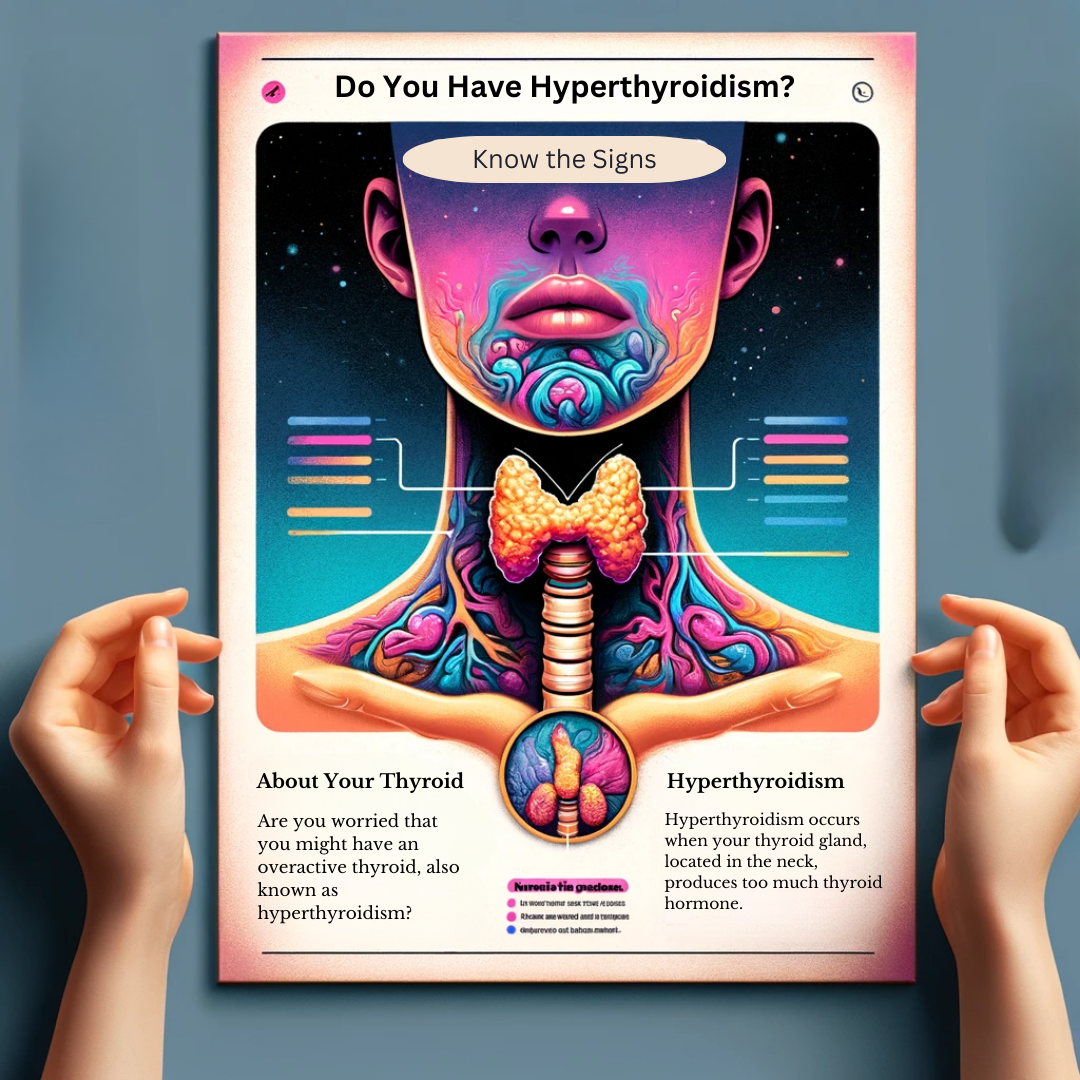
by T. Evans l Updated January 25, 2025
Are you worried that you might have an overactive thyroid, also known as hyperthyroidism? It’s a condition that can affect anyone, but it’s more common than you might think. Understanding overactive thyroid symptoms may help you to manage the condition better or have an honest conversation with your treating physician. This article aims to shed light on hyperthyroidism, its impact on different ethnic groups, and various hyperthyroidism treatment options, including what you should discuss with your doctor and natural remedies for hyperthyroidism.
What is Hyperthyroidism?
Hyperthyroidism occurs when the thyroid gland in the neck produces too much thyroid hormone. This hormone plays a vital role in regulating your body’s metabolism.
Prevalence in Different Ethnic Groups
Studies have shown that hyperthyroidism affects different ethnic groups at varying rates. For instance, African Americans and Asians are less likely to develop this condition compared to Caucasians and Hispanics. Pacific Islanders also have a lower incidence rate. However, it’s crucial to note that hyperthyroidism can occur in any ethnic group.
Recognizing the Signs and Symptoms
Knowing the signs of an overactive thyroid is the first step in seeking treatment. Common overactive thyroid symptoms include:
- Rapid heartbeat or palpitations
- Unexplained weight loss
- Increased appetite
- Nervousness or anxiety
- Sweating
- Changes in menstrual patterns in women
- Fatigue
- Difficulty sleeping
Treatment Options
Treatment for hyperthyroidism varies based on the severity and cause of the condition. Common treatments include:
- Medications to reduce thyroid hormone production
- Model predictive control (MPC) for antithyroid medication
- Radioactive iodine therapy
- Radiofrequency ablation (RFA)
- Surgery, in rare cases
Discussing with Your Doctor
When you visit your doctor, it’s essential to discuss:
- Your symptoms and their severity
- Your medical history and any other health conditions
- The best treatment plan for your specific case
Natural Remedies and Self-Care
While medical treatment is crucial, natural remedies and self-care can also play a significant role in managing hyperthyroidism. These include:
- Eating a balanced diet rich in fruits, vegetables, and lean proteins
- Regular exercise
- Avoiding foods that may exacerbate symptoms, like iodine-rich foods
- Stress management techniques like yoga, mindfulness, and meditation
Keep in mind that there is no hard fast rule that keeps you from including natural remedies as a component of your hyperthyroidism treatment. Your physician will likely encourage you to adopt a healthy lifestyle to support medical treatment.
Seeking Further Information and Support
For more resources and support, visit sites like the National Institute of Diabetes and Digestive and Kidney Diseases (NIDDK) or the American Thyroid Association. These sites offer comprehensive information on thyroid disorders, including hyperthyroidism. Additionally, support groups, both online and in-person, can provide a community of individuals who understand what you’re going through.
Conclusion
Hyperthyroidism can be a challenging condition, but with the right knowledge and support, it’s manageable. By understanding the signs and symptoms, seeking appropriate treatment, and practicing self-care, you can maintain a healthy lifestyle despite having an overactive thyroid.
References
National Institute of Diabetes and Digestive and Kidney Diseases (NIDDK). (n.d.). Hyperthyroidism. Retrieved January 25, 2025, from https://www.niddk.nih.gov/health-information/endocrine-diseases/hyperthyroidism
Nature Research Intelligence. (n.d.). Graves’ disease and hyperthyroidism management. Retrieved January 25, 2025, from https://www.nature.com/research-intelligence/graves-disease-and-hyperthyroidism-management
Mayo Clinic. (n.d.). Hyperthyroidism: Diagnosis and treatment. Retrieved January 25, 2025, from https://www.mayoclinic.org/diseases-conditions/hyperthyroidism/diagnosis-treatment/drc-20373665
ArXiv.org. (2023). Model Predictive Control (MPC) for optimizing antithyroid medication dosing. Retrieved January 25, 2025, from https://arxiv.org/abs/2307.16690
More Articles from Mahogany Speaks to You
- Understanding Hypothyroidism: Signs, Symptoms, and Treatment
- Best Sleep Position and Pillows for Back Pain
- Cooling Blankets: Are They Worth It?
- 8 Reasons We Yawn
- Stress Management: Five Ways to Kick Stress in the A**
- How to Sleep Better at Night
- Sleep Texting: Is It Real?
- Three Simple Reasons Its Okay to Eat Chocolate
- Are You Addicted to Food?
Disclaimer
The content of this article has been developed with the assistance of advanced AI technology. While every effort has been made to ensure accuracy and reliability, the unique nature of AI-generated content may result in variations from traditional content sources. We recommend consulting with a qualified professional for specific advice related to these topics.